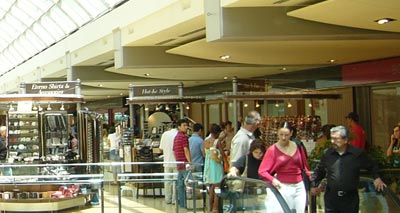 |
 |
|
|
Business Bootstrapping
Business bootstrapping is a method in business of making your money go further.
If you reduce your costs or and improve your cash flow you won't need to borrow money or as much money.
An obvious way to make your money go further is to pay for things on credit.
Many wholesalers after a time will give you free business credit (usually 30,60 or 90 days) because you have become a trusted business, i.e. you always pay up. At first there doesn't seem a good reason for the wholesaler to give away free credit - they are losing out on interest and could experience cash flow issues themselves if things aren't paid on time.
The obvious benefits though to a wholesaler are that because you can usually access the products quicker then the logic is that you are more likely to have sold the stuff you buy from them - this is therefore a win win situation as you are therefore more likely to stock up sooner. Wholesalers will only start giving this benefit usually after you have ordered from them several times and have become a trusted business.
The other obvious advantage to the suppliers are that you may become tied to them from a cash flow perspective as you cannot afford to go somewhere else that doesn't give credit. Another supplier may offer the same products at a more discounted price or offer free postage.
Another way to make your money go further is the use of factoring. Factoring involves selling your receivables to a buyer, such as a commercial finance company, to raise money and is very common in certain industries, such as the clothing industry, where long receivables are part of the business cycle. Factors usually buy accounts receivable at a rate that ranges between 75 and 90 percent of face value, and then add a discount rate of between 2 and 6 percent. The factor assumes the risk, and task, of collecting the receivables. If your prices are set up to take factoring into account, you can still make a healthy profit.
Customers can also help you obtain financing by writing you a letter of credit. For example, suppose you're starting a business manufacturing industrial bags, and a large corporation has placed an order for a steady supply of cloth bags. The major supplier that you'll source the material through is located in China. In this scenario, you obtain a letter of credit from your customer when the order is placed, and the material for the bags is purchased using this letter of credit as security.
If your business needs to buy its facility, your initial costs may be high, but the building's cost can be financed over a long-term period of 15 to 30 years. The loan on the facility can be structured to make optimum use of your planned growth or seasonal peaks. For instance, you can arrange a graduated payment mortgage that initially has very small monthly payments with the cost increasing over the lifetime of the loan. The lower monthly payments give your business time to grow. Eventually, you can refinance the loan when time and interest rates permit.
Another advantage is that real estate generally appreciates over time and creates a valuable asset called equity. You can borrow against this equity - lenders often loan up to 75 or 80 percent of a property's appraised value. This also applies to any personal real estate you own. Home equity loans are a popular financing device for new business owners because there's often substantial equity tied up in a home, and the loans are easy to come by.
If you spend a lot of money on equipment, you may find yourself without enough working capital to keep your business going in its first months. Instead of paying cash for your equipment, the manufacturer can effectively loan you the money by selling you the equipment on an installment basis. This helps conserve your working capital while allowing you to use the equipment in your business.
Two types of credit contracts are commonly used to finance equipment purchases:
1. The conditional sales contract. The purchaser doesn't receive title to the equipment until it's fully paid for.
2. The chattel-mortgage contract. The equipment becomes the property of the purchaser on delivery, but the seller holds a mortgage claim against it until the amount specified in the contract is paid.
Leasing is another way to avoid financing the entire purchase of high-ticket items like equipment, vehicles, furniture, computers and even employees. With leasing, you pay for only that portion you use, rather than for the entire purchase price. When you're just starting out in business, it might make sense to shop around and get the best leasing arrangement possible. For example, you could lease a photocopier for several hundred dollars a month rather than financing the entire $2,000 purchase price, or you could lease your automobile or van instead of shelling out $20,000 or more for the full purchase price of the vehicle.
There are many ways that a lease can be modified to increase your cash position. These modifications include:
- A down payment lower than 10 percent, or no down payment at all.
- Maintenance costs that are built into the lease package, thereby reducing your cash outlays. If you needed employees or a repairperson to do maintenance on purchased equipment, it would cost you more than if you had leased it.
- Extending the lease term to cover the entire life of the property (or use of the property for as long as you wish to use it).
- A purchase option that allows you to buy the property after the lease period has ended. A fixed purchase price can also be added to the option provision.
- Lease payments that can be structured to accommodate seasonal variations in the business or tied to indexes that track interest to create an adjustable lease.
Bootstrap financing really begins and ends with your attention to careful management of your financial resources. Be aware of what you spend and keep your overhead low. If you need to go the top-dollar route, make sure you can justify the expense. Don't choose an overly expensive office or location unless it's really going to pay off in increased sales. Take a look at secondhand furniture-if it works for your office, buy it - or who knows you may be able to get it for free. Barter for goods and services where appropriate. Buy on promotion, to take advantage of better prices offered for a limited time.
Keep a close watch on operating expenses. If interest rates are high, it won't take too many unpaid bills to wipe out your profits. At a 10-percent interest rate, carrying an unpaid $9,000 of bills will cost you $75 per month. Tight margins can mean it's more costly to accumulate bills than increase production. So you have to be weary about expanding too fast as it could put you out of business.
Related articles
